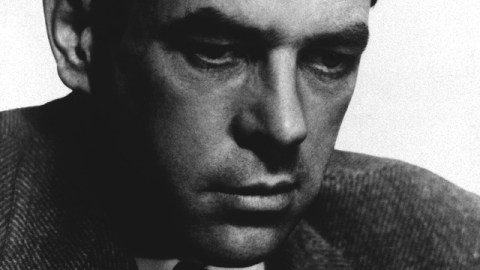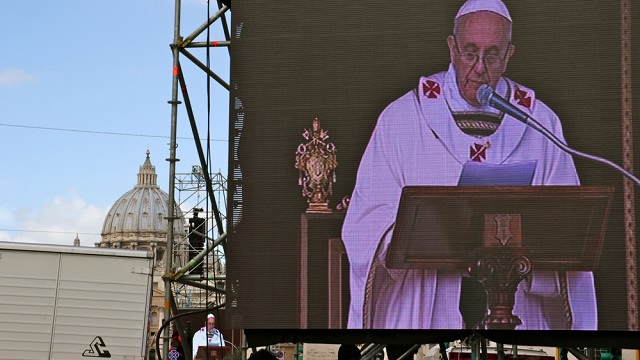Joseph Campbell and the Continual Relevance of Mythology

One of the reasons Joseph Campbell’s work in comparative mythology continues to resonate—some, myself included, would argue grow—is due to his ability to synthesize religious and spiritual traditions from around the planet and show consistencies that occurred between cultures that had no possibility of interaction with one another.
One of his most meaningful sentiments, from his book The Inner Reaches of Outer Space, today remains contested by orthodoxies the world over, though makes for a perfect rallying cry for those who wish to show the absurdity of thinking yourself ‘chosen’ due to your birthright or religious affiliation:
‘Black Elk’s word, ‘The center is everywhere,’ is matched by a statement from a hermetic, early medieval text, The Book of the Twenty-four Philosophers: ‘God is an infinite sphere, whose center is everywhere and circumference nowhere.’ The idea, it seems to me, is in a most appropriate way illustrated in that stunning photograph taken from the moon, and now frequently reproduced, of an earthrise, the earth rising as a radiant celestial orb, strewing light over a lunar landscape. Is the center the earth? Is the center the moon? The center is anywhere you like. Moreover, in that photograph from its own satellite, the rising earth shows none of those divisive territorial lines that on our maps are so conspicuous and important. The chosen center may be anywhere. The Holy Land is no special place. It is every place that has ever been recognized and mythologized by any people as home.’
While today the term ‘holy land’ usually conjures Israel—we have to wonder if Jewish nationalism would be so great if the originally intended settlement of Uganda had panned out instead of Jerusalem—we could just as easily replace the term with ‘Manifest Destiny.’
Campbell’s work did not lack integrity—contrast is as important as comparison. Blindly assigning values to ideas without any basis in reality is a dangerous habit. You can’t make disparate pieces fit into different puzzles. Yet what Campbell recognized was that, as a constantly changing and evolving species, there was a need for synthesis, regardless of what our histories told. As he wrote in Myths to Live By,
The old differences separating one system from another now are becoming less and less important, less and less easy to define. And what, on the contrary, is become more and more important is that we should learn to see through all the differences to the common themes that have been there all the while.
The value of mythological studies is always in its application to the world in which we live now. While this might be a rapidly shifting society, human patterns are old and sometimes we stubbornly refuse to face who we are becoming, fixed in a holding pattern of who we believe we once were. Evidence can be seen daily: in the ridiculous quibbling over immigration reform and insane restrictions of abortion rights in the states to the ruling and social responses to the Trayvon Martin murder and the unending ‘debate’ of climate change.
What other reason for a case about Americans having ‘incredible DNA’ as the basis for not instituting comprehensive immigration reform could we invoke than a refusal to understand how this country is shifting? For the most part, such blatant racism is not a general consensus, but that it exists, and that enough people subscribe to it to vote politicians into office who will back such sentiments is a strong indicator that we still value contrast over comparison.
I notice this trend in my own discipline of yoga. Certain styles are founded on the basis that they have the most ‘pure’ intent, which really translates as most ‘Indian’ and most ‘ancient.’ Nothing historical backs this up, of course—the fantasy of purity is enough for their imagination. This type of thinking is toxic. It inevitably leads to exclusion and separation, practices Campbell consistently warned against.
Campbell would not live to see his life’s work influence so many people around the world. His most popular work, The Power of Myth, an interview and subsequent PBS series with Billy Moyers, was published months after his passing. In that masterful work he discussed the beauty of marriage and romantic love, the passionate call to live a creative life, and, as always, the importance of comparison.
He also urged listeners not to look too far into history to understand who we are today, and more importantly, who we want to become. Evolution—social, psychological and spiritual—was always at the forefront of his lectures and books. As he said in those final moments of his life,
It doesn’t help to try to change [an imposed system] to accord with your system of thought. The momentum of history behind it is too great for anything really significant to evolve from that kind of action. The thing to do is learn to live in your period of history as a human being. That’s something else, and it can be done.





